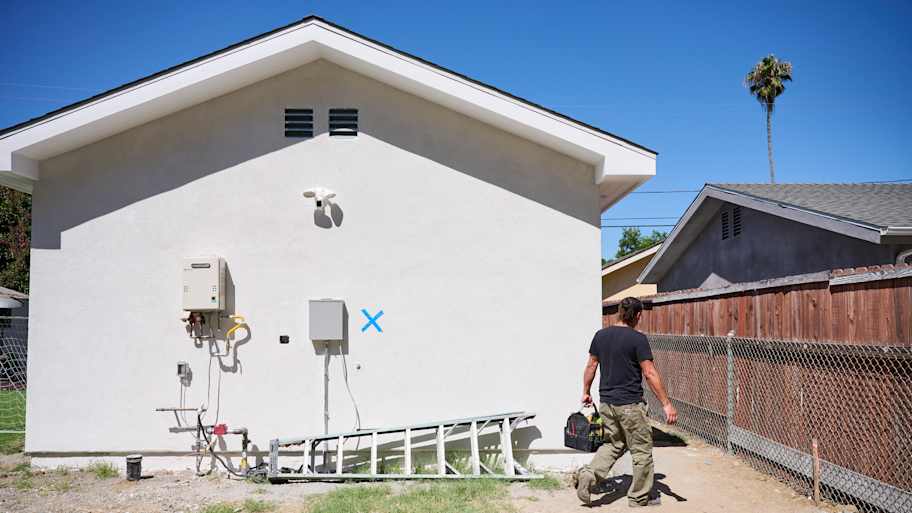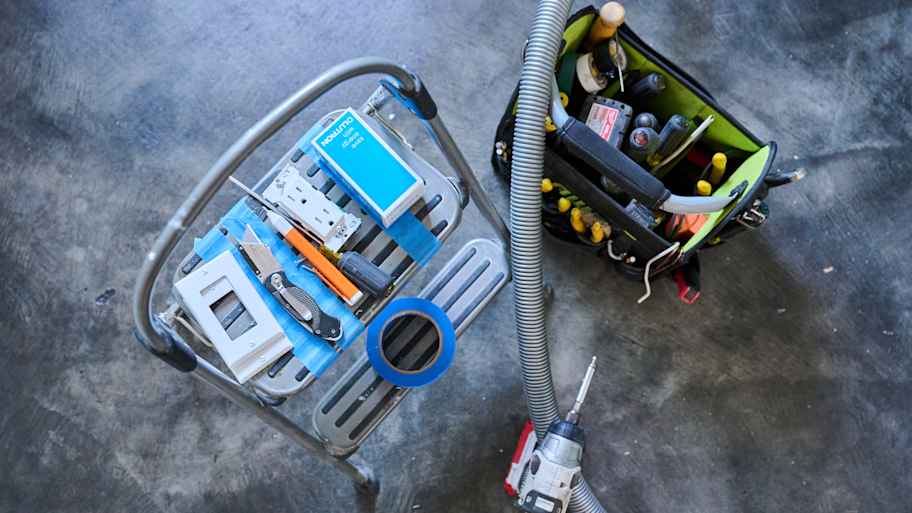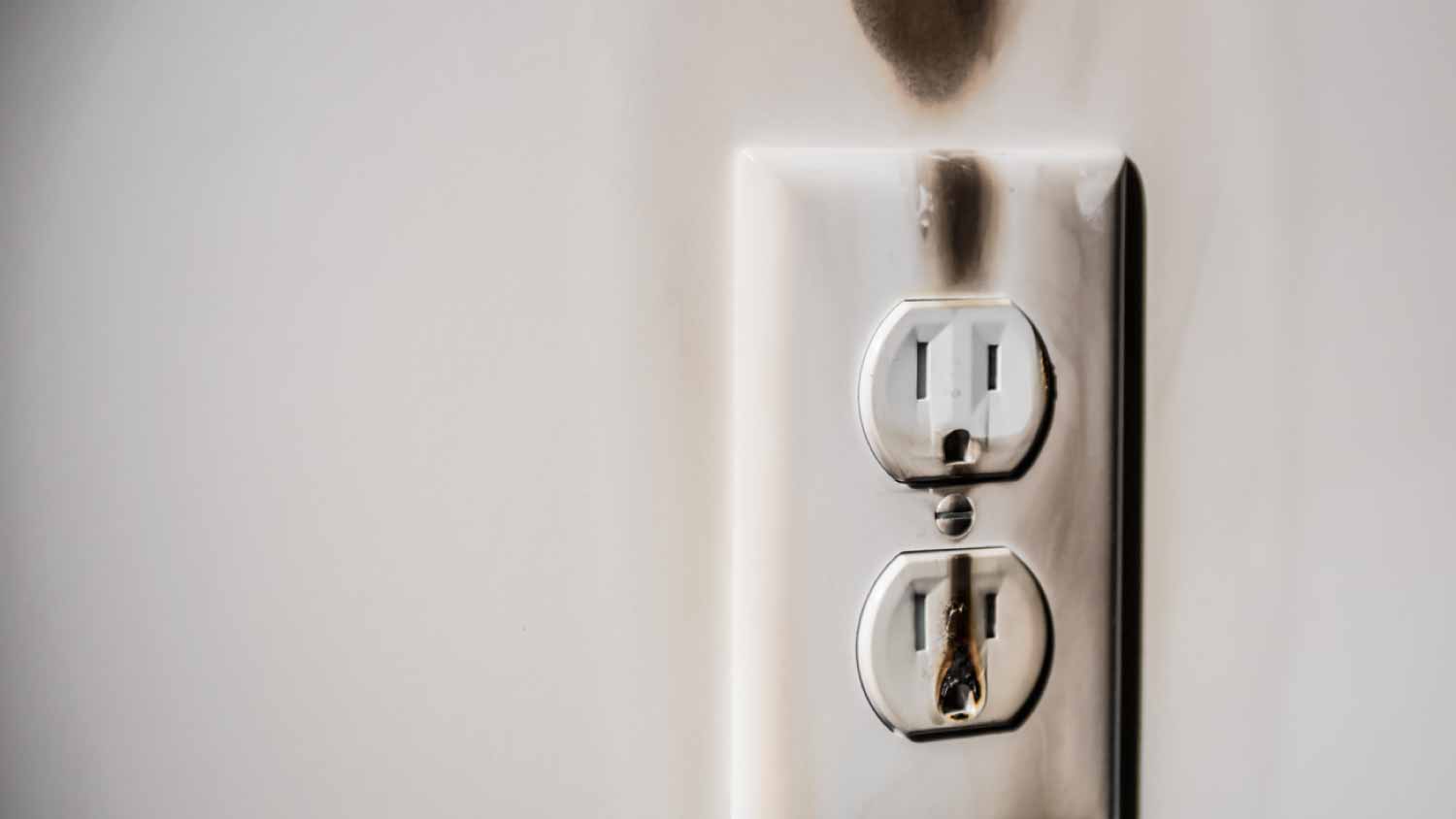How Does a Whole House Surge Protector Work?
You might be "shocked" to learn how beneficial they are


Whole home surge protectors give homeowners peace of mind when lightning storms strike.
Instead of protecting appliances at the outlet, they prevent surges from the electrical panel.
These products are affordable, especially considering how much electrical damage repairs can cost.
For safety, a professional electrician or electrical company should install the product.
You're cooking dinner and running the dishwasher at the same time. Then suddenly, ZAP—the lights go out. Or maybe a lightning storm is rolling through, and you lose power across your home from one swift bolt. Power surges can be inconvenient, if not dangerous, as excessive energy can damage appliances.
One remedy is to have a whole-home surge protector installed. In this guide, learn how they work and if the investment is worth it over simply using power strips throughout your home.
What Is a Whole Home Surge Protector?
In the same way a plug-in surge protector works to protect your TV and other appliances, a whole home surge protector works to prevent electric power surges and spikes across your home.
An electrical power surge is a high voltage charge of electricity that makes its way through your home's wires. This increase exceeds the max rated voltage (usually 120-volts) in your home, and can result in damage to your home's electronics and appliances.
Because electric surges are often uncontrollable—lightning storms and grid malfunctions are two of the major causes—a whole home surge protector acts as a buffer for all your home's devices. In that sense, surge protectors can make a great investment.
How a Whole Home Surge Protector Works

Whereas single surge protectors are plugged into an outlet in your home and work to protect a handful of items, a whole home surge protector is plugged directly into your home's electrical panel.
An easy way to understand surge protectors is to think of them as energy diverters. When a surge or spike rolls through, the device sends all the excess power that your home's appliances can't take on safely down through your home's grounding power line.
Benefits of a Whole Home Surge Provider
They offer comprehensive lightning protection at the point of entrance to your home.
They shield larger appliances that draw more energy, like washers and dryers.
They protect your home's entire electrical system.
They prevent standby energy loss and potential damage to appliances.
They're generally affordable.
Three Types of Surge Protectors
There are three types of surge protectors to help homeowners achieve peace of mind. Here's a bit about each to help homeowners decide which might be right for them.
1. External Surge Protectors
An external surge protector is installed outside the home on the utility pole to the breaker panel and is waterproof. It essentially eliminates the possibility of higher-than-safe volts of electricity making their way down the power line and entering your home.
2. Whole Home Surge Protectors
The whole home surge protector is wired directly into your electrical panel. Higher than average volts can still enter your home, but they’ll get cut off before ever getting to your appliances and devices.
3. Appliance Surge Protectors
You’re likely familiar with these types of surge-protective power strips. They are the last line of defense against surges and work the same way as a whole home surge protector, only they divert extra energy into the outlet's ground wiring.
Whole-Home Surge Protection: How Effective Is It?
In short, a whole-home surge protector can be very effective. Many homeowners understand the risks of plugging in too many appliances and use a power strip to avoid surges and spikes. But some don't think about the great number of HVAC and kitchen appliances, among other items, that draw larger amounts of power.
A whole-home surge protector can be a great insurance policy against bad weather and power grid malfunctions. Electrical damage repairs can easily cost thousands, so you're making a good investment by installing one.
How Much Does a Whole Home Surge Protector Cost?
The cost to install a whole-home surge protector is between $300 and $700. Due to safety concerns when dealing with electrical wires, they should be installed by a professional electrician or local, licensed electrical company. Hiring an electrician costs between $150 and $200 per hour on average. External surge protectors are slightly more affordable, falling between $300 and $1,000 to have installed.





- Home Generator Repair
- Lamp Repair
- Electric Repair
- Generator Installation
- TV Antenna Services
- Emergency Electricians
- Commercial Electricians
- Attic Fan Installation
- Attic Fan Repair
- Exhaust Fan Installation
- Electric Inspectors
- Subcontractors
- Electrical Construction
- EV Charger Installer
- Chandelier Installation
- Doorbell Installation
- Bathroom Fan Installation
- Ring Installers
- Electrical Panel Upgrade
- Are HVAC Surge Protectors Necessary? 5 Benefits to Consider
- Should You Invest in Surge Protection For Your Home?
- What Is an Electrical Power Surge?
- Circuit Breaker vs. Surge Protector: What’s the Difference?
- 7 Home Electrical Safety Tips That You Should Know
- How to Prevent Electrical Fires at Home: 13 Helpful Tips
- Whole-House Generator Sizing: Everything You Need to Know
- What Size Generator Do I Need? A Guide to Choosing the Right Generator for Your Home
- The Ultimate Home Inspection Electrical Checklist
- 10 Things to Do When the Power Goes Out at Home











